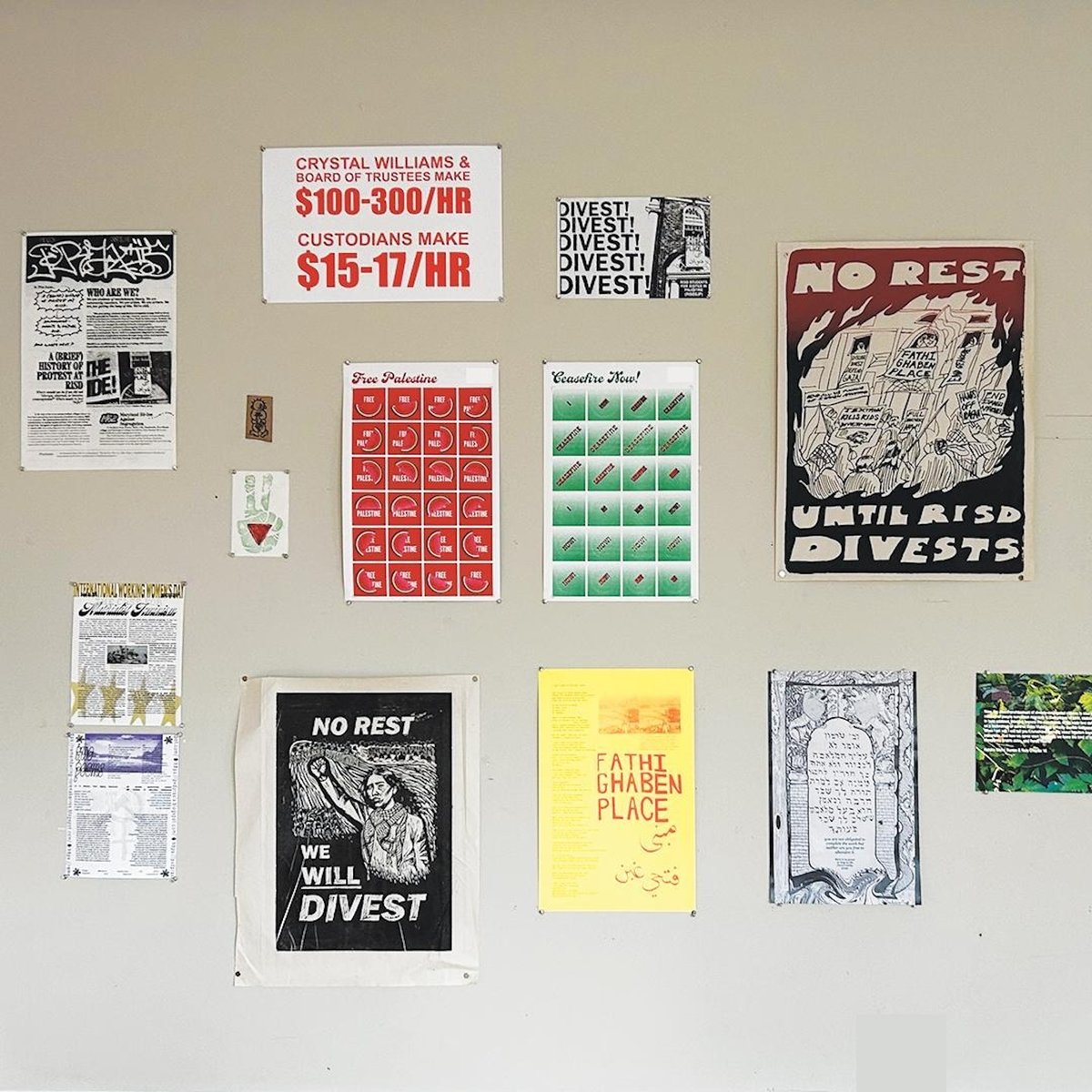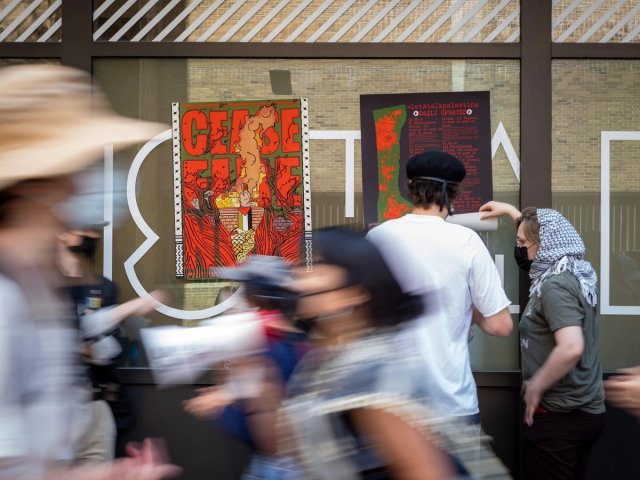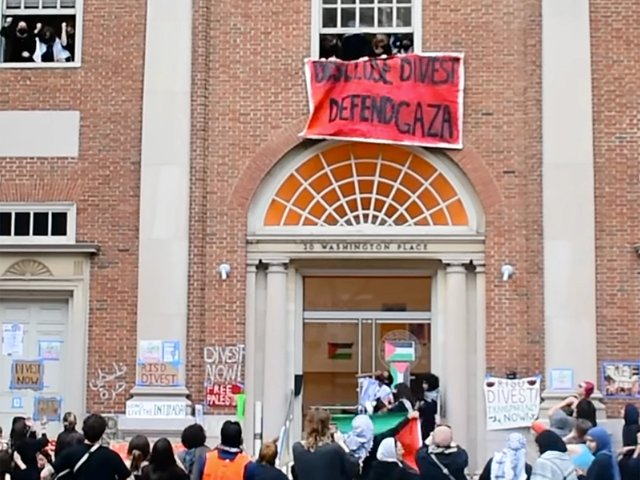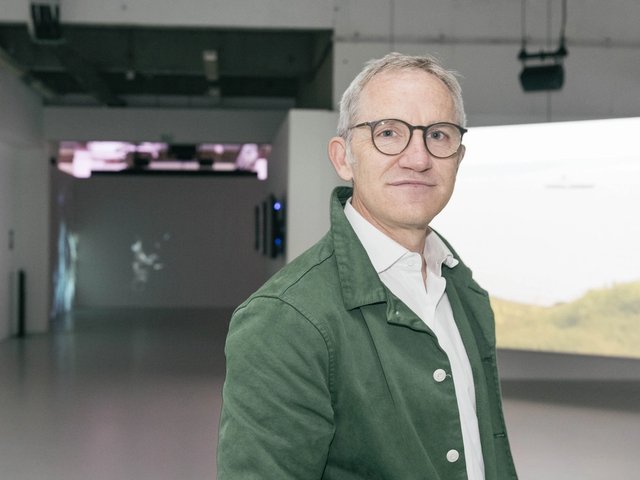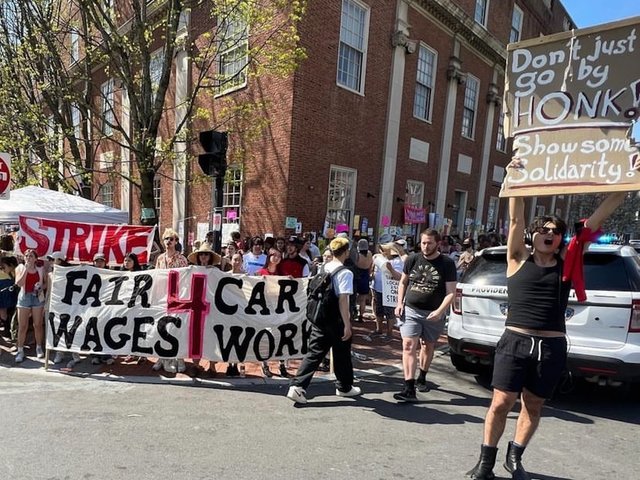The administration of the Rhode Island School of Design (RISD) shut down a pro-Palestinian student exhibition held on campus last week. The exhibition, To Every Orange Tree, was organised by the school’s chapter of Students for Justice in Palestine (RISD SJP) and Carr Haus Café, a student-run café that is accessible to the public. The show, which opened on 17 March, featured the work of over 20 artists, including both current students and alumni.
The exhibition was originally approved by RISD and scheduled to run through 2 May. More than 70 people attended the opening, according to the organisers. Three days later the platform StopAntisemetism posted about the exhibition on X, claiming that the show was “promoting violence against Jews and calling for the removal of Israel” and urging its followers to write to the school’s leaders. Following the post on X, public safety officials closed the student-run café and the RISD administration asked students to take down the work. (The shuttering occurred during RISD’s spring break, when many students were not on campus.)
“As curators of this student-driven exhibition, RISD SJP is committed to the privacy and safety of our artists and organisation members,” members of RISD SJP told The Art Newspaper in a collective statement. “RISD SJP is disappointed with the lack of communication from RISD's Center for Student Involvement to our school organisation regarding the initial dissatisfaction with the exhibition prior to the opening, as well as the lack of our input in the decision to reconfigure To Every Orange Tree. De-installing on such short notice, after a display time of four days, and in the middle of spring break when many students are not present on campus, is an insult to our integrity as student leaders, artists and curators and an obvious attempt at suppression of solidarity with Palestinian liberation.”
RISD’s president Crystal Williams sent an email to the entire student population on 26 March in which she wrote that the show had been the “focus of negative public attention, including calls for its removal”. She added that she “condemned antisemitism” and that the exhibition would be moved to the school’s Providence Washington building, which is not publicly accessible. She said the decision was made to “uphold safety” and allow people to “engage with this exhibition of their own volition”, statements echoed by a RISD spokesperson.
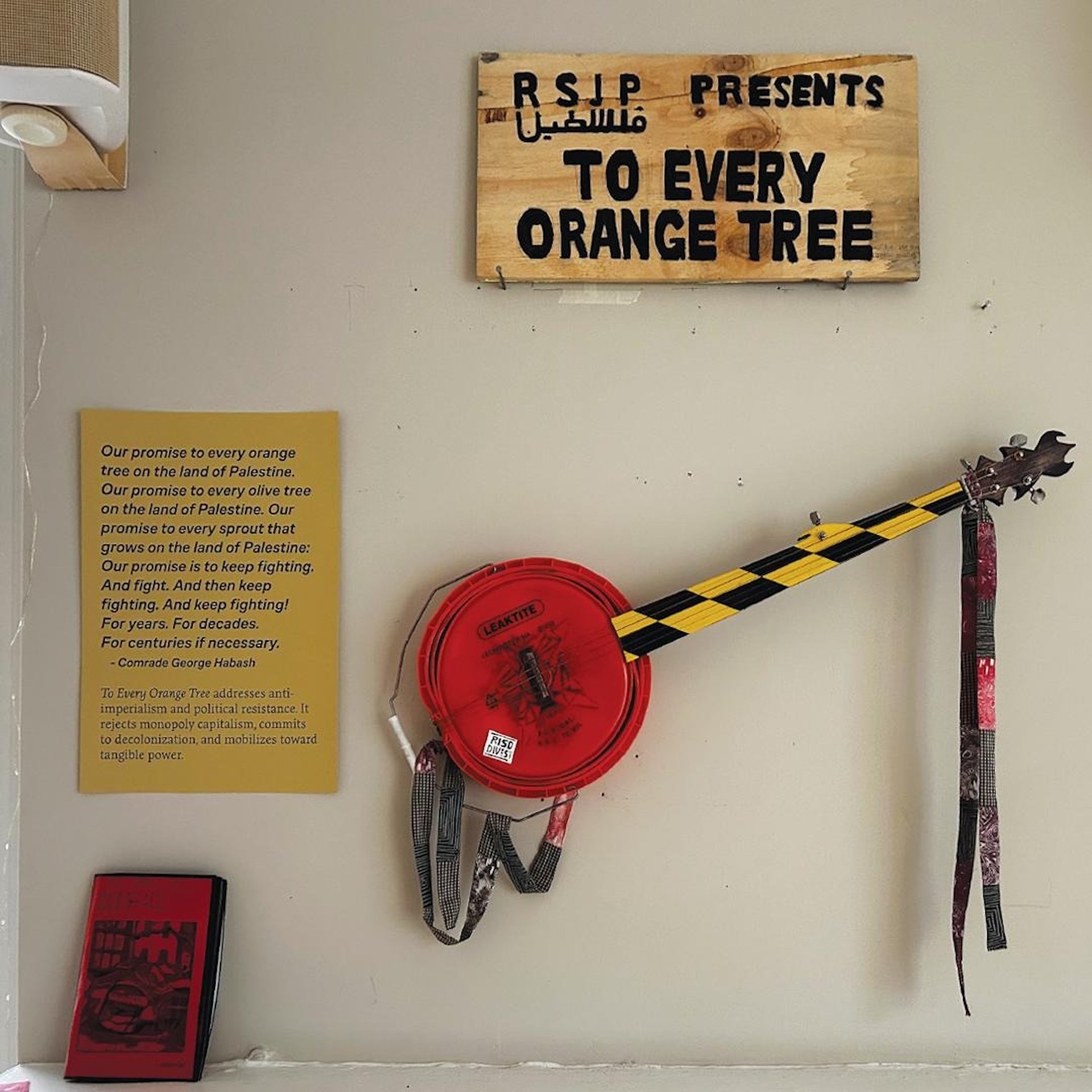
Installation view of To Every Orange Tree at the Carr Haus Café Courtesy RISD SJP
“Since its opening on 17 March, an art exhibition co-organised by two student groups has been the focus of negative and concerning public attention, the volume and vitriol of which informed our decision,” a RISD spokesperson tells The Art Newspaper. “Out of caution, we decided to relocate the student exhibition from a publicly open space to a more secure location. Relocating the exhibition enables us to prioritise safety, honour our commitments to artistic expression and freedom of speech, and uphold our commitment to a culture of care, particularly in these fraught times.”
“Despite Williams’s commitment to having ‘been in conversation with faculty leaders, the student organisers of the exhibition and concerned members of RISD’s community about prioritising our community’s safety, honouring our commitments to artistic expression and freedom of speech, and upholding our commitment to a culture of care, particularly in these fraught times’, no communication other than the previous demand has been received by members of RISD SJP,” a spokesperson for the group tells The Art Newspaper, adding that the group was not involved in the decision to move the exhibition.
Artworks included in the exhibition feature images of the Providence Washington building, where students staged a protest last May, renaming the building “Fathi Ghaben Place” in honour of the late Palestinian artist. Students occupied the building for several days but eventually left after the administration threatened to expel students involved in the protest. Some of the other works in the show, meanwhile, do not have overt political messages and do not mention the current war in Gaza, but focus instead on other liberation struggles and anti-colonial campaigns.
The decision by RISD to close and relocate the exhibition drew a strong rebuke from the National Coalition Against Censorship. "RISD justifies the censorship with vague protectionist doublespeak that claims to prioritise the safety of those involved with the show, while at the same time suggesting that irreparable harm might befall its audience," Elizabeth Larison, the director of the coalition's arts and culture advocacy programme, wrote in a letter to RISD's leaders. "Hosting an on-campus exhibition with pro-Palestine views is no doubt challenging in this McCarthyist moment, and colleges and universities across the US are rightfully trying to protect their students who are visiting the US on student visas. However, an institution of higher education that emphasises the arts should be able to meet this challenge without capitulating to a presidential administration intent on forcing our nation’s cultural and educational institutions in compliance with its political ideology."
The show is now set to reopen in the Providence Washington building on 7 April, following students’ return from spring break. A meeting between RISD SJP and the administration is scheduled for 1 April.


